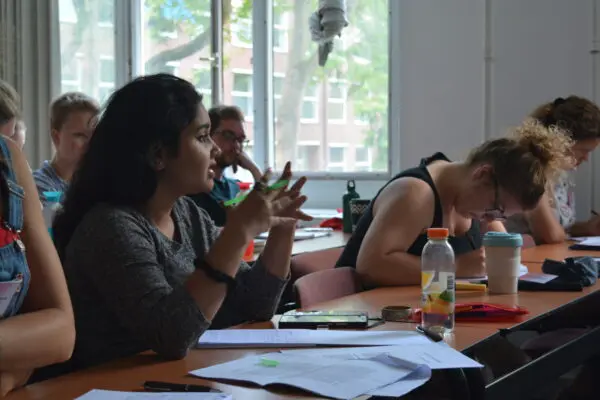
Amsterdam, Netherlands
Foundations of Machine Learning with Applications in Python (Confirmed)
When:
18 August - 22 August 2025
Credits:
3 EC
Read more
Economics
When:
26 September - 04 October 2022
School:
Institution:
TStat Training
City:
Country:
Language:
English
Credits:
0 EC
Fee:
890 EUR

Many phenomena in the fields of economics, medical and social science, such as unemployment, crime rates or infectious diseases tend to be spatially correlated. Spatial econometrics has developed to include techniques and methods to model the spatial characteristics of such data, by taking into account both spillover effects and spatial heterogeneity.
Our "Introduction to Spatial Analysis using Stata" course offers researchers a unique opportunity to acquire the necessary toolset to conduct exploratory spatial data analysis. The course begins by providing an overview of Stata’s sp suite of commands for spatial analysis and then discusses both how to manage different kind of spatial data and how to prepare spatial data for empirical analysis. The course moves on to focus on spatial data visualization, how to define proximity using spatial weights matrices and how to detect spatial autocorrelation. In the closing sessions participants are introduced to spatial autoregressive models, more specifically on the concepts of estimation, testing and model selection. Special emphasis is given to the computation and interpretation of average direct and indirect marginal effects and to the treatment of special cases such as multiple spatial interactions and more endogenous covariates.
In common with TStat’s course philosophy, each individual session is composed of both a theoretical component (in which the techniques and underlying principles behind them are explained), and an applied segment, during which participants have the opportunity to implement the techniques using real data under the watchful eye of the course tutor. Throughout the course, theoretical sessions are reinforced by case study examples, in which the course tutor discusses and highlights potential pitfalls and the advantages of individual techniques. Particular attention is also given to both the interpretation and presentation of empirical results.
Upon completion of the course, it is expected that participants are able to identify and evaluate which specific spatial econometric methodology is more appropriate to both their dataset and the analysis in hand and subsequently apply the selected estimation techniques to their own data.
Ph.D. Students, researchers and professionals working in public and private institutions interesting in acquire the latest empirical techniques to be able to independently implement spatial data analysis.
Many phenomena in the fields of economics, medical and social science, such as unemployment, crime rates or infectious diseases tend to be spatially correlated. Spatial econometrics has developed to include techniques and methods to model the spatial characteristics of such data, by taking into account both spillover effects and spatial heterogeneity.
Our "Introduction to Spatial Analysis using Stata" course offers researchers a unique opportunity to acquire the necessary toolset to conduct exploratory spatial data analysis. The course begins by providing an overview of Stata’s sp suite of commands for spatial analysis and then discusses both how to manage different kind of spatial data and how to prepare spatial data for empirical analysis. The course moves on to focus on spatial data visualization, how to define proximity using spatial weights matrices and how to detect spatial autocorrelation. In the closing sessions participants are introduced to spatial autoregressive models, more specifically on the concepts of estimation, testing and model selection. Special emphasis is given to the computation and interpretation of average direct and indirect marginal effects and to the treatment of special cases such as multiple spatial interactions and more endogenous covariates.
Fee
890 EUR, Full-time students*: € 890.00 Ph.D. Students: € 1140.00 Academic: € 1320.00 Commercial: € 1770.00 *To be eligible for student prices, participants must provide proof of their full-time student status for the current academic year. Our standard policy is to provide all full-time students, be they Undergraduates or Masters students, access to student participation rates. Part-time master and doctoral students who are also currently employed will however, be allocated academic status.
When:
26 September - 04 October 2022
School:
Institution:
TStat Training
Language:
English
Credits:
0 EC

Amsterdam, Netherlands
When:
18 August - 22 August 2025
Credits:
3 EC
Read more

Amsterdam, Netherlands
When:
21 July - 25 July 2025
Credits:
3 EC
Read more

Groningen, Netherlands
When:
07 July - 11 July 2025
Credits:
1.5 EC
Read more